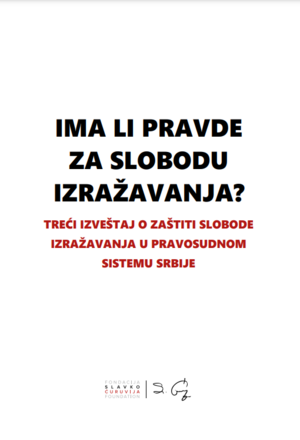
This report by the Slavko Ćuruvija Foundation analyzes case studies in which well-recognized media have entered specific legal disputes with other parties, such as politicians, journalists, businessmen, investors, etc. It evaluates judicial proceedings, judgments, and the implementation of international norms and standards to assess how efficiently media disputes are solved in judiciary terms, taking into account the behavior of the courts in different circumstances.
Overall, the authors analyzed 139 cases of media disputes and 278 judgments recorded in Serbia. They encompass different case studies of first-instance and second-instance judgments, noticing that procedural deadlines have overall been respected with no significant deviations.
The report also highlights a significant increase in SLAPP cases over the years. Violations of personal dignity, honor, reputation, and privacy were among the main reasons for filing lawsuits. Such a worrying trend has also come to the attention of the European Commission, which has addressed it in its progress reports and advanced some suggestions on mitigating measures.
Similarly, the number of threats to journalists and media workers has increased gradually over the years, both on online platforms and in real-life situations, often leading to significant material damage for the people involved.
At the end of each section of the report, the authors advance particular recommendations suggesting potential solutions and reflections to ensure further effectiveness and accuracy in the work of the courts. The report finally stresses the need for a critical approach to the question of violations of freedom of expression and the risk of jeopardizing the safety of journalists, highlighting the importance of monitoring these phenomena.
The report is available in Serbo-Croat-Bosnian (SCB).
Tags: Serbia Freedom of expression Safety of journalists Legal protectionThe content of this article can be used according to the terms of Creative Commons: Attribution-NonCommercial 4.0 International (CC BY-NC 4.0) . To do so use the the wording "this article was originally published on the Resource Centre on Media Freedom in Europe" including a direct active link to the original article page.

